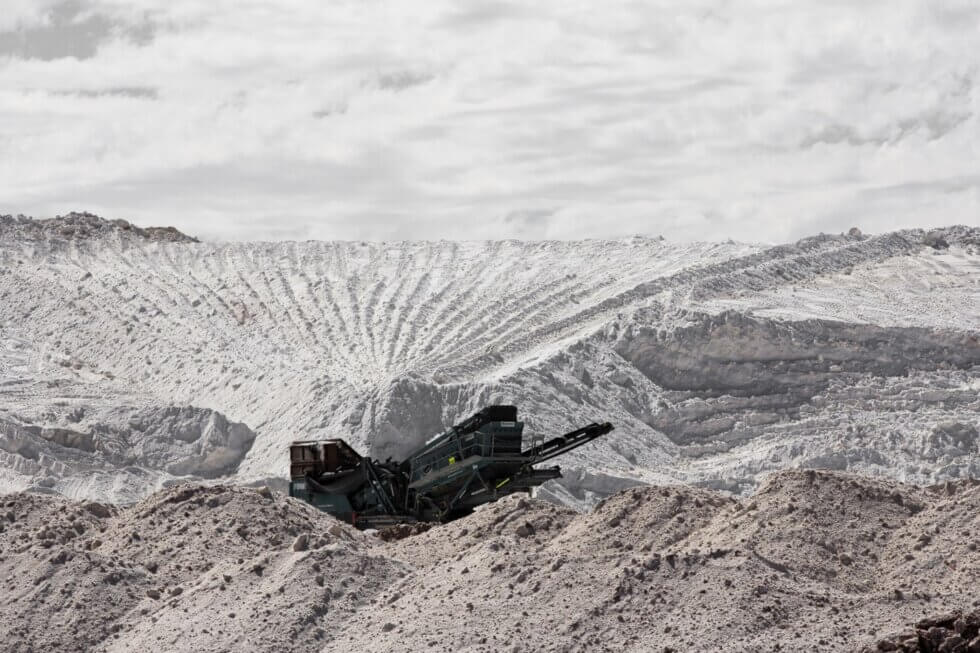Salar: Evaporation
Anna Friz, University of California Santa CruzToronto 2021: Multispecies

“Salar: Evaporation” is a multi-channel video and sound installation belonging to a larger series of works entitled “We Build Ruins” created in collaboration with Rodrigo Ríos Zunino, a project which expressively documents areas of mining and industrial exploitation in the high altitude desert in northern Chile. Based on intensive desert fieldwork, the project considers the temporality and scale of massive extractive industries and accompanying infrastructure designed by humans, located in a vast desert and mountainous environment that in turn exceeds the human. Incorporating practices such as sound walking and ‘fields recording’ (phonographies of acoustic and electro-magnetic waves), photo montage and video, this research expressively considers the temporality and scale of human extractive industries, accompanying infrastructures, and human labour in parallel to the various rhythms of weathering and geological change in the desert. Environments are also media, and bodies recording devices. Our fieldwork begins from practices of noticing and from the notion of listening as a quality of attention not limited to the ear.
The people of Chile have been engaged in widespread national resistance and protest to business-as-usual by the state government and multi-national corporate forces that have accelerated the exploitation of land and ecosystems while propagating gross economic and social inequities. The massive street protests of 2019 were subdued by government order at the onset of the COVID-19 pandemic, but the citizen activism and demand for change continues, as the extraction of minerals also continues unabated. As such, areas of resource extraction like the Atacama desert should not be understood as peripheral or as neutral nodes of industry, but as centers of power in relation to which cities and digital cultures are its peripheral expressions. In parallel to our work in the desert that serves to critique extractivist logics and practices, “Salar: Evaporation” also considers how the desert produces power in the form of unique and fragile ecosystems and geological expressions of time, from which much more may be learned and imagined than the totalizing narratives imposed upon the land by industrial mining. We reflect upon the metamorphoses taking place and the labour required to produce these changes of state, from wet to dry and from hard to soft.
This project is part of a larger series of works based on research and fieldwork in the Atacama desert in Chile entitled We Build Ruins, and was made possible with funding from the Canada Council for the Arts, the Hellman Fellowship, the Arts Research Institute of the University of California, Santa Cruz, and the Committee on Research at the University of California, Santa Cruz.
Published: 01/30/2023
